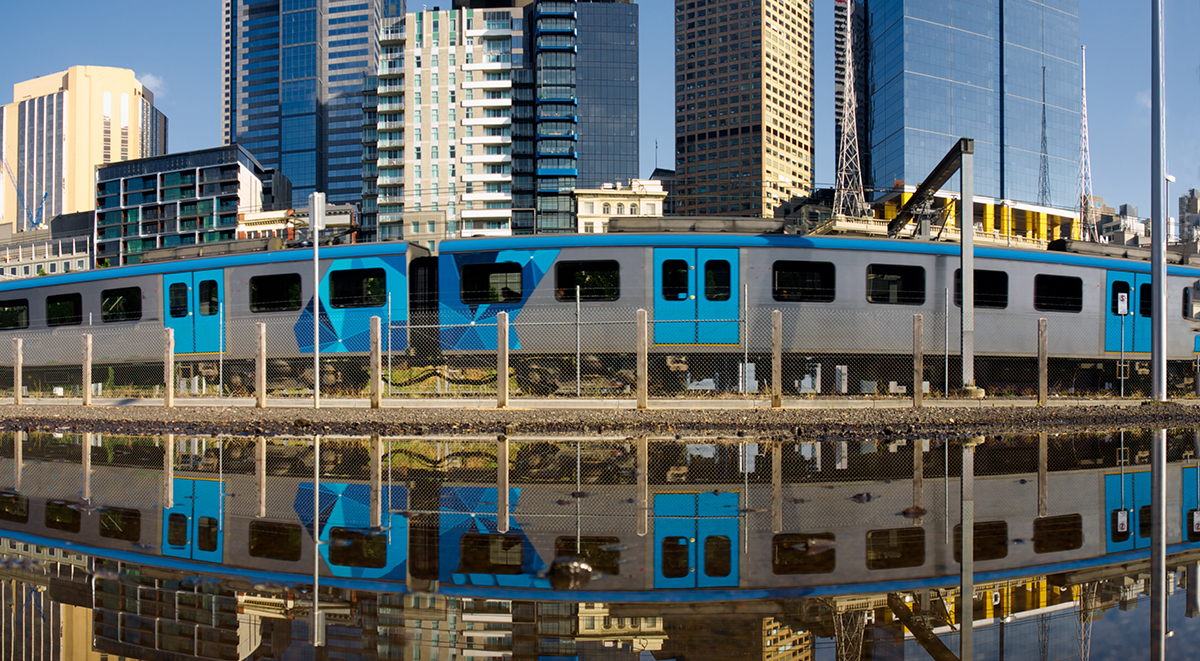Diverse learnings shape new generation of urban water professionals
In many sectors, tertiary education and training can often fail to keep up with a changing industry, leaving students unprepared for how things are done in the real world. Back in 2013 the International Water Centre redeveloped a module within its Master of Integrated Water Management to harness the most up-to-date research in the urban water sector. Drs Annette Bos and Briony Rogers from the Cooperative Research Centre for Water Sensitive Cities (CRCWSC) provided their expertise to design a module entitled Urban Futures: Delivering Water Sensitive Cities. Recognising the need to keep up with steadily advancing knowledge in this field – and with no single individual possibly able to provide the breadth of expertise required – the module was cleverly structured to include substantial guest input from current industry practitioners and CRCWSC researchers.
Throughout the new module’s first five years, contributions from Professor Tony Wong, the research groups of Professors Ana Deletic and Nigel Tapper, Dr Peter Breen, Professor Rebekah Brown and other CRCWSC faces have between them provided ongoing support through lectures, webinars, field trips, and more. For example, this year Tony presented a webinar on the emerging role of blue and green corridors in defining urban form. He discussed with the students how increased urban density presents opportunities for sustainable and resilient innovations, but also warned that if these innovations are not done well with a dense population, liveability can be compromised.
Varying guests each year means that students get to hear from experts on the most recent, innovative, and exciting water sensitive urban design (WSUD) approaches and techniques, as well as hearing from industry professionals experienced in putting WSUD principles into practice.


But even prior to guest input, the Master’s program has been a diverse and collaborative project from conception: a joint venture of four Australian universities – The University of Queensland, Griffith University, Monash University, and the University of Western Australia, combined with industry, government, and practitioner input – in response to the need to build stronger partnerships to tackle water problems both in Australia and abroad. The program is transitioning to being delivered at Griffith University’s Nathan Campus (from 1 January 2018) by lecturers from all four founding universities. Annette remains the chief examiner and module lead for Urban Futures, and this year was joined by David Robertson, Assistant Lecturer at the Monash Sustainable Development Institute.
“Underlying this diversity of institutions, expertise, and experience is a unified message from all contributors. The focus is on crossing disciplinary divides: essential if we are to achieve a water sensitive cities paradigm that supports cities to make the transition toward liveable, sustainable, productive and resilient water futures,” David explained.
In addition to drawing on a broad range of experts to deliver the module, Urban Futures has an unusually diverse cohort of students receiving the training. International students come from all over the world, primarily studying full-time, while domestic students tend to balance part-time study with full-time work in the water sector. They also come from a wide range of professional and academic backgrounds: half are engineers of different stripes, while others might be biologists, architects, environmental managers, scientists or economists.
“Student diversity in the module is one of its biggest assets,” said David. “The water sensitive cities paradigm is inherently interdisciplinary and boundary-spanning.” This means the full range of each of the students' disciplinary, professional, geographic, and cultural backgrounds can be brought to bear across class discussions, activities and field excursions. Everyone has examples and knowledge to share with others. “Much of the time, module educators act mostly as facilitators and guides, because we are confident in the experience and insight the group can collectively reach.”
As part of the redesign, the Urban Futures module also contains a strong diversity of educational methods and tools, including specialist lectures, in-depth discussions, practical exercises, case studies, interactive workshops, and field trips. All equip a new generation of water professionals to translate ideas about water sensitive cities into reality. While the part-time cohort typically takes the course in online mode, David’s previous comment makes clear that there is much educational value in peer discussions. The use of Zoom, which functions as an online classroom that students participate in via video, enables the geographically dispersed cohort to engage in lively exchange throughout the module.
For half a decade, this highly diverse module has provided a valuable pipeline for continually transferring the latest CRCWSC research, tools and information to the next generation of water professionals. While postgraduate education and real-world methods can often fail to sync up, these students are supported to engage closely with the most current industry research and practice.
“The field trips proved invaluable for demonstrating the concepts we've learned in combination with the practical challenges that arise when applied to real life”, said Kyle Wang, one of the current students.
Look out for the next edition of WaterSENSE, where we will further explore how these expert-guided site visits prepare the students for a career in the water industry.
Sam Green for the Mind Your Way team.